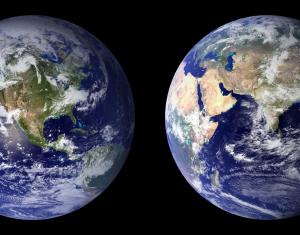
ISF views local communities as the foundation upon which nations and transnational communities exist and function. Whether small rural villages or large urban metropolises, sustainability values and principles help in addressing the operations and impacts of local and transnational production/consumption systems as well as monitoring and responding to the many demands and needs of citizens, businesses, and other institutions and stakeholders.

ISF works with organizations, campaigns and initiatives around the world working to address the threats of climate change, biodiversity loss and the spread of pesticides and toxic chemicals are transnational communities. So are the various agencies, programs and member nations of the United Nations and the growing communities of transnational corporations and investors. ISF is especially interested in the transnational community of advocates, educators, researchers and policymakers advancing regional and global sustainability.

Communities of practice form when people come together into learning circles to help each other improve their skills and knowledge. ISF believes such situated learning plays an essential role in sustainable development. We celebrate the sustainability practices and insights emerging from such learning networks -- from organic gardening and green building design to complexity theory and policy lobbying. This is a self-organizing, self-empowering activity and resource, especially important to practitioners engaged and committed to building sustainable communities and societies.

Communities of faith directly approach sustainability through actions aimed at climate change, food and local farming, energy use, and more. Many faith communities are strongly social-justice oriented, local and welcoming to many different population groups: age, race, gender, ethnicity, etc. ISF recognizes a large and growing number of the world's organized religions actively promoting sustainability efforts. The potential is huge. Humanity's future cannot be sustained by facts alone.

Promoting regional sustainability requires a wide understanding of and sensitivity to diverse ecosystems, politics and cultures, negotiating collaborative strategies and initiatives that work. This kind of activity ranges from bioregional cooperation among towns, cities and states to global regional agreements and coordination among nations in Latin America, Asia Pacific, Africa, Western and Eastern Europe and Western Asia.
